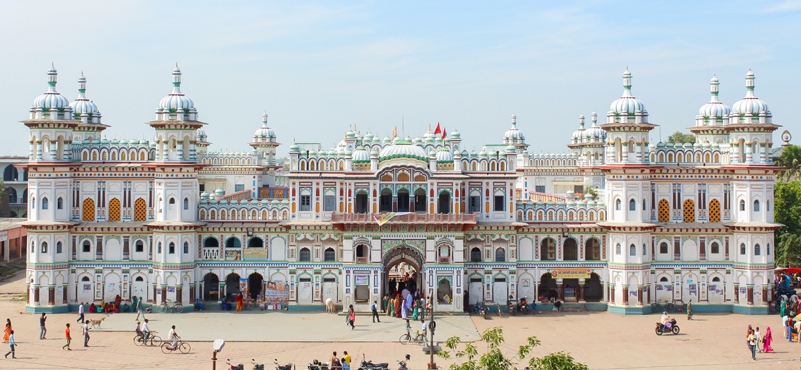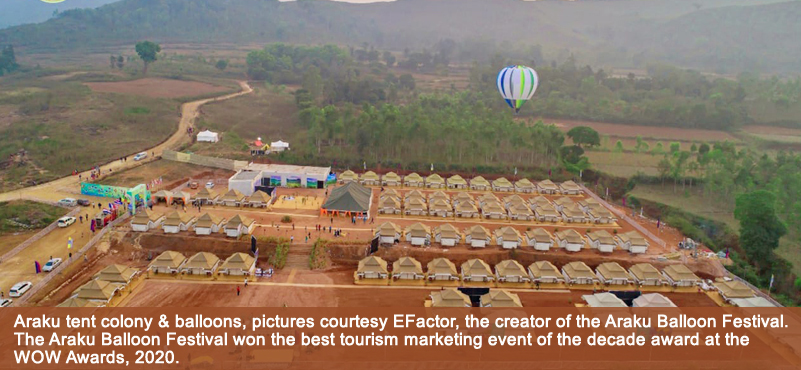D.M. Purnesh, Founder and MD, Classic Group notes that with ample coffee production and the experience quotient involved therein, tourists are increasingly taking to homestays in the region, helping sustain local economy, apart from popularizing local cuisines that have yet been shrouded in obscurity. But the lack of a single window clearance system in the homestay segment is deterring the growth of a niche segment which may well turn out to be a major peg of tourism offerings for the southern state in the years to come.
 Coffee is a quintessential south Indian produce. An important item for export and revenue generation for southern states, Coffee has, over the years, become synonymous to an authentic south Indian experience.
Coffee is a quintessential south Indian produce. An important item for export and revenue generation for southern states, Coffee has, over the years, become synonymous to an authentic south Indian experience.
However, going beyond tasting a perfect cuppa, tourists are increasingly looking at experiencing the process of coffee plantation, giving wings to a niche segment: coffee tourism. Karnataka, being an important coffee producing region, is steadily garnering coffee enthusiasts who prefer staying with local planters at their homes, in turn, boosting homestay segment in the region. “I have been the fourth generation of coffee planter. We have homestays in Mullayanagiri and Sakleshpur. The last ten years has been absolutely crazy. People visit from nearby regions to experience the beauty of this place,” explained D.M. Purnesh.
This changed scenario has also expanded the tourism bouquet of the state, which primarily relied on pilgrimage and heritage tourism to court visitors to its shore. The idea of tourism itself is under a profound change. “Things are changing now,” concurred D.M. Purnesh.
“People would previously go to Sringeri and Dharmasthala and much of the state’s tourism offerings was oriented towards religious tourism,”
he said. Adding that tourists now visit these plantations to experience nature, birds and vegetation, he shared “we had an ornithologist visit one of our resort, and we were surprised to find over 100 different varieties of birds in one single plantation. A lot of people now seek a vacation which is high on experience and relaxation quotient.” Serene backdrop and meandering foothills of the Western Ghats is also attracting bikers and campers to these plantations which offer numerous opportunities for exploring their interests.
The concept of homestays came to fore in the past decade “The concept of homestays has come into being in the state in the last decade or so. It all began with Coorg, and percolated into Chikmagalur,” recalled the seasoned coffee planter. “The idea of watching a coffee planter going about his daily chores and being a part of it fascinates a traveller. Tourists get to stay in their houses and sample local authentic cuisines that have been part of the local culinary tradition for several generations,” he added, indicating that apart from the experience of witnessing the process, the unfolding trend was also boosting culinary offerings of the state and taking it to a much larger audience than ever before.
There are reasons galore for the growing trend. The foremost is the challenge of sustaining livelihood for small coffee planters who find it challenging to manage their expenses with only engaging in coffee production. It is also important to understand that a vast majority of coffee planters are small-time farmers who do not produce significant amounts of coffee to make it a financially viable proposition for them. “Every other house in the region has become a homestay. It adds to the income of local planters and sustain their livelihood. Tourism simply adds to business and sustains families,” elaborates D.M. Purnesh.
Much of the traffic emanates from within the region. Bengaluru, Mangalore and other nearby regions have fuelled much of the footfalls.
Some of it can also be attributed to improved facilities with hotels like Taj Vivanta and Tamara and others attracting tourists.
However, footfalls and awareness are not commensurate to what the region has on offer. “There is simply not enough publicity. I suppose this will start slowly. There are a few homestays in Coorg, now, that cater exclusively to foreigners. Perhaps, they are more open to the available services and are less demanding – which suits local planters who cannot provide top notch service,” details D.M. Purnesh.
The way forward
If looked at with intent, the segment offers untold potential for the tourism landscape of the state. The rosy prognosis has several riders, however. The absence of a single window clearance system for homestays has been the biggest hurdle in pushing the coffee tourism segment in the state. D.M. Purnesh notes that for opening a homestay one needs
10-12 clearances from various government agencies, related to power, environment and others. While the state government has put in place a single window clearance system, it does not cover the homestay segment. “It has put a massive dent on the prospect of coffee tourism.
It is a big hassle for small farmers who wish to use their humble homes to entertain visitors. They do not have the bandwidth to acquire so many permissions and licenses to operate small-time homestays,” he reasons. “Processes need to be simplified for planters to take advantage of these opportunities that lie untapped,” he adds.
The promotion and outreach by the state tourism board, too, has never really focussed on this niche segment, he alleges. “They primarily talk about heritage and pilgrim tourism. While some work has been done, but we are nowhere near states like Gujarat, Rajasthan and Kerala – which are attracting the world,” he said.
He bats for a “similar proactive approach” to attract tourists. “There is simply no talk of the experiences that visitors can sample while their visit at these coffee plantation sites,” rues D.M. Purnesh.




































